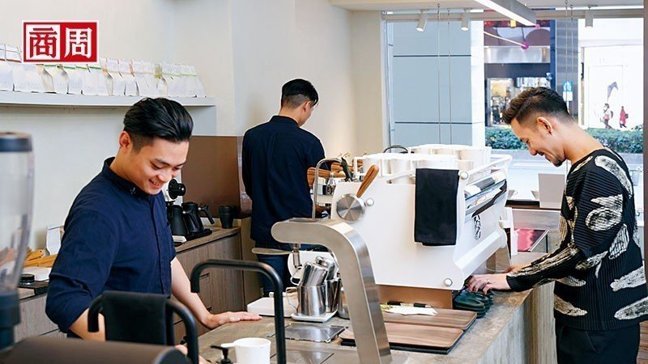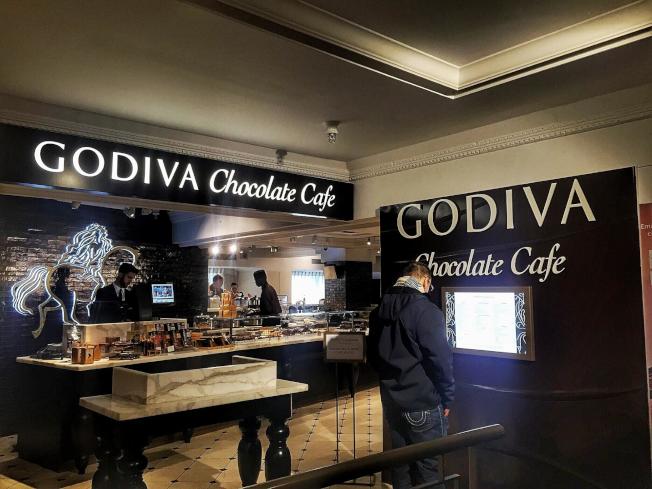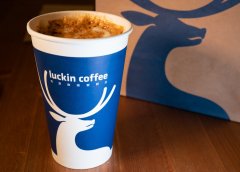Coffee brewing champion Wang ze's way to win the championship. What's so special about Wang ze's cafe?

Professional coffee knowledge exchange more coffee bean information please follow the coffee workshop (Wechat official account cafe_style)
When it comes to the history of coffee in Taiwan, it can be traced back to the 10th year of Guang Xu of the Qing Dynasty (1884). This was the first year of coffee cultivation in Taiwan, which was tested in Sanxia District of New Taipei City until the Japanese occupation era (1935). Large-scale planned cultivation.
With the evolution of food culture, coffee found in Ethiopia in the 6th century was brought to Europe by Muslims and then to the world through the colonial empire of the nautical age. Since 2000, the World Coffee Association (WCE) has held seven competitions every year to promote coffee, including bean roasting, cup testing, coffee master and brewing. Taiwan won the world championship in 2014, 2014, 2016 and 2017 respectively. Wang ce, who won the brewing championship in 2017, is the first person in the Chinese community to win this competition.
Unlike most Taiwanese children, when Wang ce was 6 years old, his parents began to import coffee machines. He said, "I do wake up every day in the aroma of coffee, probably because it is too rich. I hardly drank coffee until I left Taiwan for more than a decade at the age of 12. I didn't get interested until my father tricked me to Shanghai with bitter meat tricks."
Cultivate good taste buds by practicing blue ribbon
Before 2015, which can be said to be the first year of Wang ce's coffee, the only thing in his life that followed his father's arrangement was to study as a senior dessert chef at the Blue Ribbon Cooking School in London. "what I learned most in this year's study is the understanding of taste," he said. For example, when granulated sugar is still a raw material, when it is mixed into the dough, when it is mixed into the dough, during baking, and after baking, there is a slight change in the taste of the sugar that we are very familiar with, which is of great help to my coffee career. It allows me to master small differences. "
In November of the first year, he went to Africa for the first time. When he saw coffee trees in Ethiopia, where he first found coffee, he smelled the most primitive flavor. He said, "later, in the roasted coffee beans, I actually smelled the flavor of the place of origin. This move really gave me goose bumps. At that time, I knew better that the 'Terroir' often mentioned in wine was also applicable to coffee." Over the next two years, he also became a bean hunter and visited Panama twice to find the dream coffee beans in his heart.
Cross-sea teachers in pursuit of excellent technology
With regard to the pursuit of technology, he followed two masters, the first being Yuwa Iwase, a practitioner in Fukuoka (two consecutive world coffee master Japanese champions in 2014 and 2015). He specially interned in the store for more than two months. at the same time, he also learned the stunts of three-handed pots under the guidance of the 2014 world brewing champion, Stefinus Dametiotis (Stefanos Domatiotis). Unlike most baristas who took years to win the championship, under his high self-demand, he represented Taiwan in 2016, won the third place in the World Cup for the first time, won the world championship the next year, and reached the top of the world in three years.
Looking at the picture of the game, I was unconsciously attracted by Wang ce's "two-handed three pots" stunt, but it was not his own trick, but he competed nine times on behalf of Greece and was carefully studied by Stefinos, a barista interviewed by CNN and TIME.
Wang ce said: "my study with him is that I fly to Greece in one month and he flies to Taiwan in two months. He studies the experience of each other for more than a year in a row. He is my coach, brother, and master in my heart." However, because of Wang ce, these two masters, who originally did not know each other, became friends who talked about everything. At the end of November last year, his new store opened in Taipei City, and both of them flew to the platform specially, indicating the good friendship between them.
Start a business to create a place to share coffee
Wang ce, who decided not to participate in the competition, has now shifted his focus to starting a business, and is most expected to convey the aesthetics of coffee life and inherit the service spirit of "host entertaining guests". And he, who has a lot of ideas about the environment, also tries his best to meet the requirements of environmental protection in the design of take-out cups, and hopes to share the knowledge and experience of high-quality coffee with high-quality coffee, so that his shop is not just a place to drink coffee. it's also a place for experience exchange.
Unlike most baristas, who devote all their energy to the cup, Wang ce gives me a feeling that cares more about the physical and mental feelings of the drinkers. When watching the film in which he won the championship, apart from fluent English and warm tone, every step was closely linked to "service" and wet the filter paper backstage, because he knew very well that cold ceramics can increase the aroma of coffee liquid, seal the ground coffee powder in a black glass jar, reduce the oxidation rate, and warm the cup in advance. Preparing coffee beans in advance (including production area, roasting degree, flavor performance, etc.) is a concrete manifestation of "wanting to be before the guests", which not only satisfies the taste and smell, but also the ultimate expression of the five senses.
He, who is related to biology in university and graduate school, is very different about career planning. "if I hadn't been in the coffee circle, I might have become a worker in the boutique industry or in a restaurant," he said. " I was not particularly surprised by his answer. Because I spent money in his store several times, I often saw him at the bar. I also personally brought boiled water to the guests, sent them baskets, and even saw him wiping everywhere with a rag. He, who is almost tortoise-hair obsessed with the "service", is fully demonstrated here. I, who are very demanding of service, do feel the spirit he sends out, which is a kind of natural display.
There is no standard for the best service, the only difference is whether you put your heart into it or not, and Wang ce, who put it into practice, is the best example.
Six parameters of success
The following parameters are applicable to the competition. With regard to making a cup of coffee at home, Wang ce thinks that you can do as you please, and there is no need to force these details too much, so you will lose the pleasure of enjoying life.
1. Ratio: 15g coffee powder, 250g hot water
two。 Degree of grinding (Grind): it varies according to each grinding opportunity
3. Time (Time): the cooking time should be controlled within two and a half minutes per cup.
4. Water temperature (Temperature): 93 ℃, cooking temperature 92 ℃
5. Turbulence: mixing occurs when passing through coffee particles, which is the so-called stirring phenomenon.
6. The quality of water (Water Quality): dissolved solid (TDS) = 70, acid-base (PH) = 6.8
END
Important Notice :
前街咖啡 FrontStreet Coffee has moved to new addredd:
FrontStreet Coffee Address: 315,Donghua East Road,GuangZhou
Tel:020 38364473
- Prev

Godiva Godivan sells part of his business and wants to open a coffee shop! Coffee is easier to earn than chocolate?
Professional coffee knowledge exchange more coffee bean information follow Coffee Workshop (Wechat official account cafe_style) February 20, Rolls-Royce's Belgian chocolate brand Godiva (Godivan) announced that it will sell part of its Asia-Pacific operations to South Korean private equity firm MBK Partners (hereinafter referred to as MBK) in order to obtain more funds for its next expansion, including
- Next

Will Ruixing Coffee, which burns money and subsidizes, lose money after all? Why is Lucky Coffee a scam?
Professional coffee knowledge exchange More coffee bean information Please pay attention to coffee workshop (Weixin Official Accounts cafe_style) Since the opening of the first store in October 2017, Ruixing Coffee has been born for only 1 year and 5 months. For a business, one year and five months is not long. However, in this short period of time, consumer users reached 12.54 million, and 2073 stores covered the whole country.
Related
- What brand of black coffee is the most authentic and delicious? what are the characteristics of the flavor of the authentic Rose Summer Black Coffee?
- Introduction to the principle and characteristics of the correct use of mocha pot A detailed course of mocha pot brewing coffee is described in five steps.
- Which is better, decaf or regular coffee? how is decaf made?
- How much is a bag of four cat coffee?
- How about four Cat Coffee or Nestle Coffee? why is it a cheap scam?
- Which is better, Yunnan four Cats Coffee or Nestle Coffee? How about cat coffee? is it a fake scam? why is it so cheap?
- How about Cat Coffee? what grade is a hoax? which instant coffee tastes better, four Cat Coffee, Nestle Coffee or G7 coffee?
- Process flow chart of coffee making-Starbucks coffee making process what coffee tastes good at Starbucks
- The top ten best coffee beans in the world Rose summer coffee or Tanzanian coffee tastes good
- Yunnan four cat coffee is good to drink?_four cat coffee is a big brand? four cat blue mountain coffee is fake?

